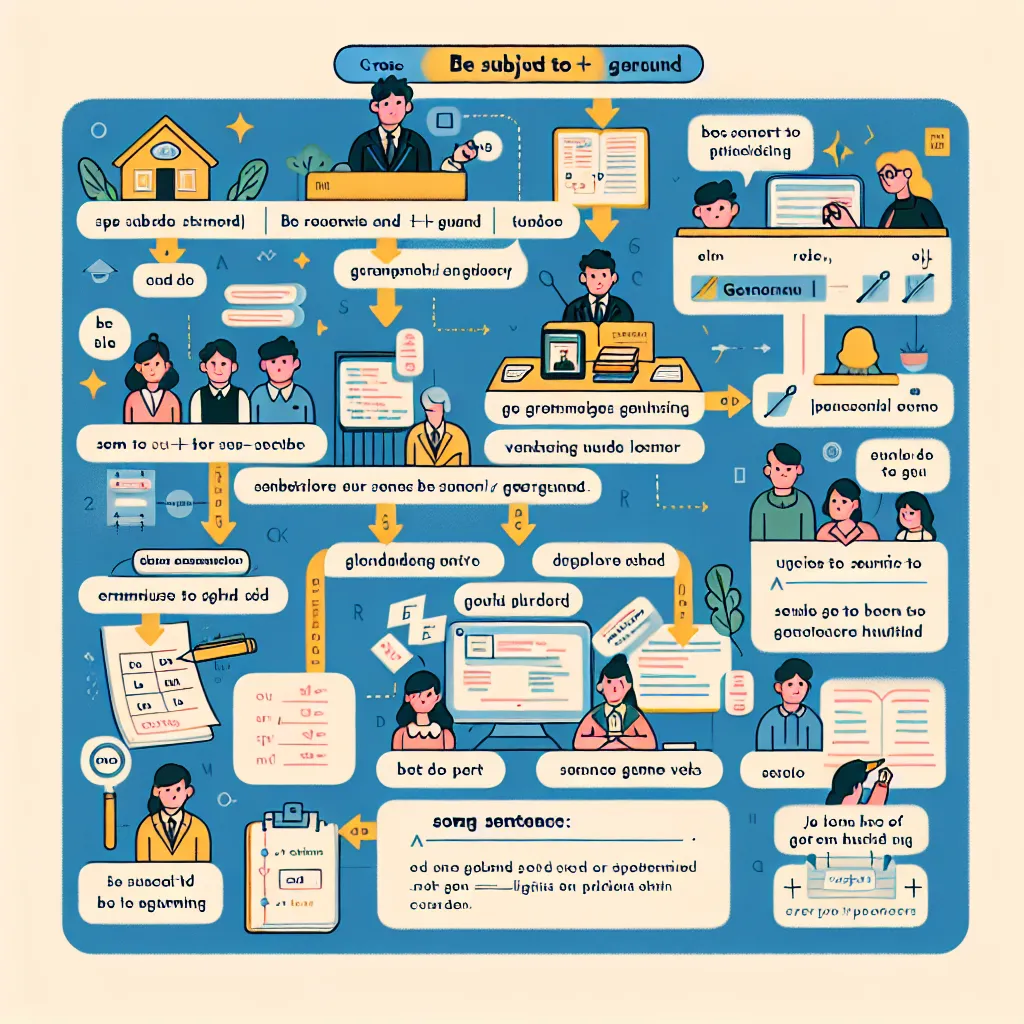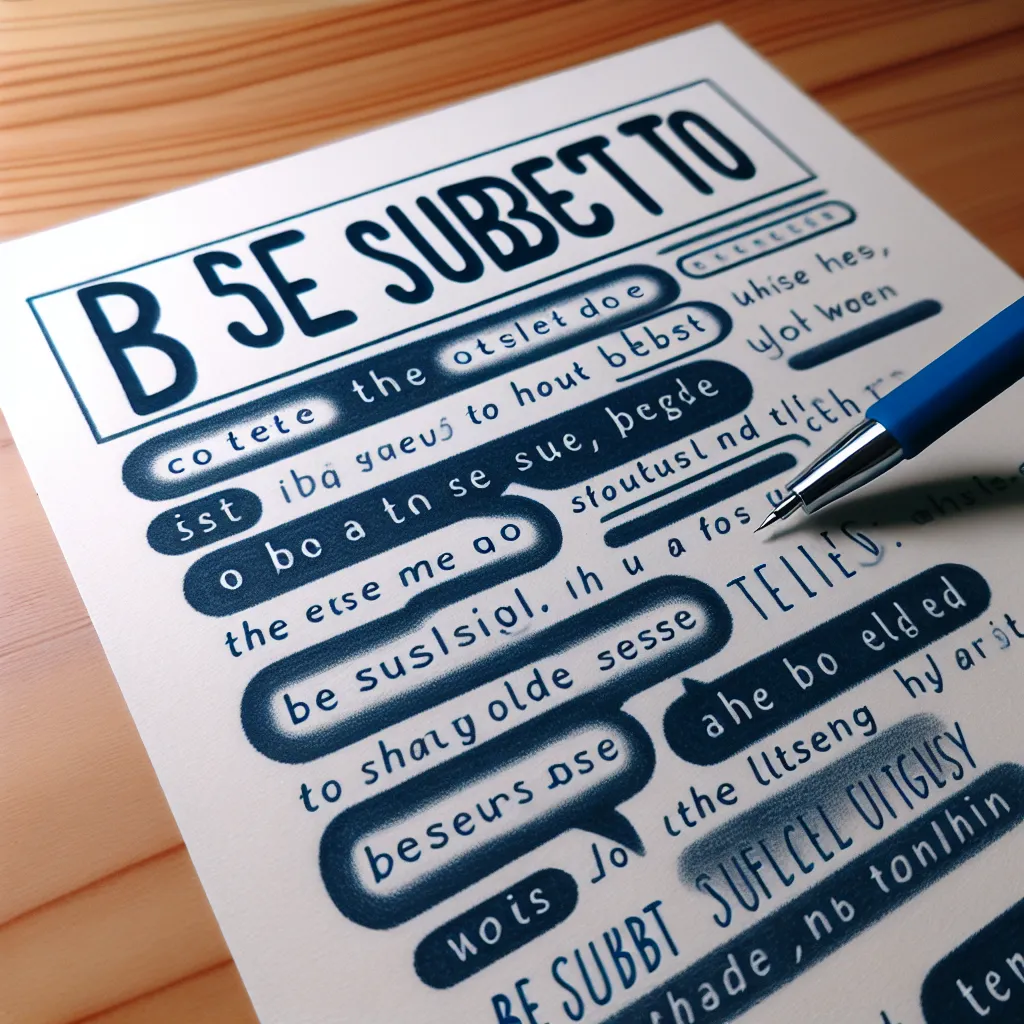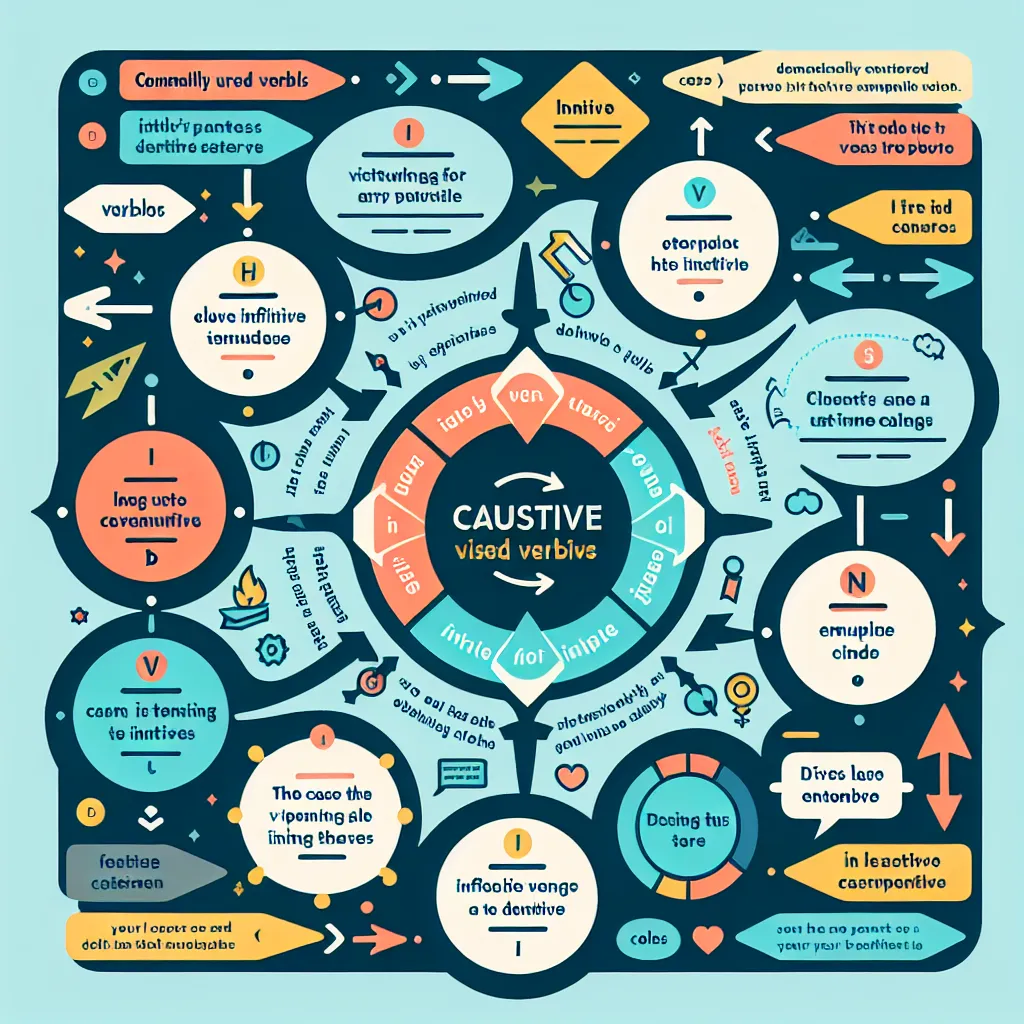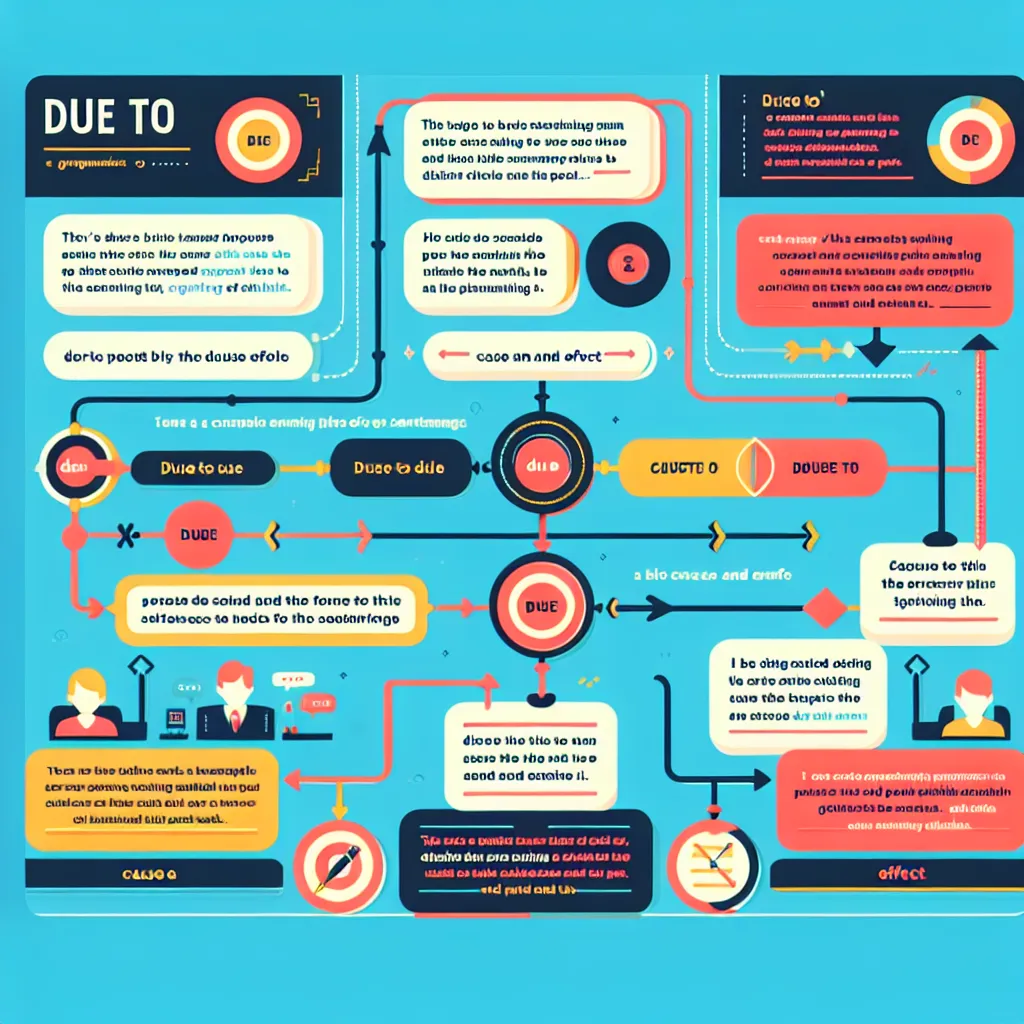The phrase “be subject to + noun/gerund” is a crucial grammatical structure that frequently appears in IELTS exams. Understanding and using this construction correctly can significantly enhance your performance across all sections of the test. Let’s delve into its meaning, usage, and application in IELTS contexts.
Nội dung bài viết
Understanding “Be Subject to + Noun/Gerund”
The expression “be subject to” essentially means “to be affected by” or “to be under the control or influence of.” It’s commonly used in formal and academic contexts, making it particularly relevant for IELTS candidates aiming for higher band scores.
Examples:
- The company is subject to strict regulations.
- Employees are subject to regular performance reviews.
- The project’s success is subject to funding approval.
- Students are subject to disciplinary action for academic misconduct.
- The agreement is subject to annual renewal.
In these examples, the noun or gerund following “subject to” represents a condition, rule, or influence that affects the subject of the sentence.
 Be Subject To Diagram
Be Subject To Diagram
Grammar and Usage in IELTS
Formula and Syntactic Analysis
The basic structure is:
[Subject] + [be verb] + subject to + [noun/gerund]
- The subject can be a person, thing, or concept.
- The be verb (is, are, was, were, will be, etc.) should agree with the subject.
- “Subject to” remains unchanged.
- The noun or gerund represents the condition or influence.
Application in IELTS Writing
In IELTS Writing Task 2, using “be subject to” can elevate your language complexity and precision. Consider this example:
Topic: Environmental Regulations
“Many argue that industries are subject to excessive environmental regulations, which can hamper economic growth. However, these regulations are essential for protecting our planet. While businesses may initially struggle to adapt, they ultimately benefit from being subject to strict environmental standards, as it fosters innovation and sustainable practices.”
Analysis:
- The first use emphasizes the impact of regulations on industries.
- The second use highlights the positive effects of environmental standards.
IELTS Speaking Application
In the Speaking test, using “be subject to” can demonstrate your grasp of complex structures:
Examiner: Can you describe any rules or regulations in your workplace or school?
Candidate: “In my university, students are subject to strict attendance policies. We must maintain at least 75% attendance in each course, or we are subject to academic penalties. Additionally, our research projects are subject to ethical review to ensure they meet institutional standards.”
This response showcases the candidate’s ability to use the structure in various contexts, demonstrating language flexibility and accuracy.
Achieving Higher Band Scores
To aim for band 7 and above in IELTS, consider these advanced applications:
- Passive voice: “The proposal was subject to rigorous scrutiny before approval.”
- Future tense: “Future space missions will be subject to stricter safety protocols.”
- Perfect tenses: “The policy has been subject to numerous revisions over the years.”
- With modals: “The agreement may be subject to changes depending on market conditions.”
Compare these with a simpler Band 6 level sentence:
“The rules can change sometimes.”
The more advanced versions not only use “be subject to” but also incorporate complex tenses and vocabulary, which are key features of higher band scores.
 IELTS Writing Sample
IELTS Writing Sample
Common Errors and How to Avoid Them
-
Incorrect preposition: “Subject of” instead of “subject to”
Incorrect: The company is subject of new tax laws.
Correct: The company is subject to new tax laws. -
Using with inappropriate nouns:
Incorrect: She is subject to happiness.
Correct: She is subject to mood swings. -
Confusing with similar phrases:
Incorrect: He is subject to do the work. (Confusion with “supposed to”)
Correct: He is supposed to do the work. -
Overuse in informal contexts:
Less appropriate: My dog is subject to barking at night.
More natural: My dog tends to bark at night. -
Incorrect verb agreement:
Incorrect: The products is subject to quality checks.
Correct: The products are subject to quality checks.
To avoid these errors, practice using the structure in various contexts and review your writing carefully. Remember, while “be subject to” is useful, it’s most appropriate in formal or academic contexts.
Conclusion
Mastering “be subject to + noun/gerund” can significantly enhance your IELTS performance. It’s a versatile structure that demonstrates advanced language skills when used correctly. Practice incorporating it into your writing and speaking, particularly when discussing rules, conditions, or influences. As you prepare for your IELTS exam, look for opportunities to use this phrase in practice essays on topics like law, business, education, and environmental policies. Remember, the key to success is not just knowing the structure, but using it naturally and appropriately in context.
For more insights on improving your IELTS grammar, you might find our articles on being proficient in using nouns and gerunds and being responsible for various aspects of language helpful in your preparation.


